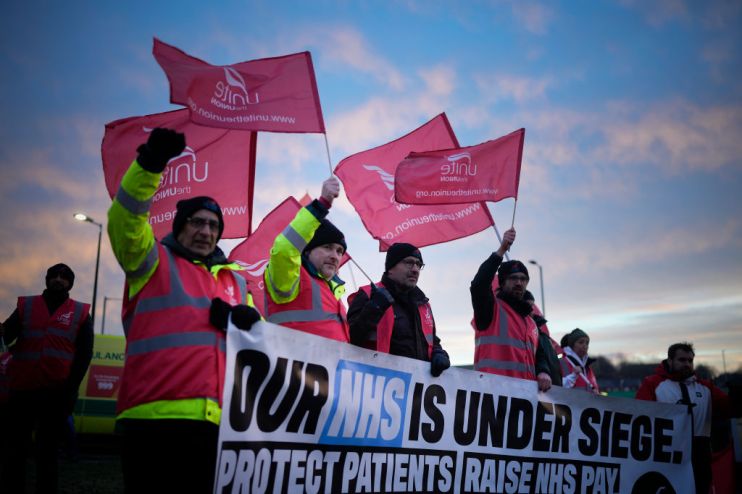It may get them elected, but overpromising will set Labour up for failure against unions

It may be tempting to promise big, but Labour need only look to mass strikes in Northern Ireland to see the price of disappointment, writes Will Cooling
The Labour leadership’s New Year’s Resolution has clearly been to convey to the party the importance of avoiding complacency. Outriders have been busily highlighting the sheer size of the swing needed to secure a bare majority, as well as instances in other countries where previously popular challengers fell at the final hurdle.
To a certain extent this is sensible from a party that has traditionally underperformed come election time with the failure to beat John Major in 1992 and the near failure to beat Sir Alec Douglas-Home in 1964 haunting this latest attempt to end a decade and a half of Tory rule. But this war against political complacency risks placing Labour in a position where it won’t be able to govern effectively.
The most striking example of this are the rumours that Rachel Reeves is considering supporting cuts to personal taxation, in a bid to counter whatever pre-election bribes the Chancellor unveils in his forthcoming budget. But such suggestions run against the reality of a public sector that requires substantial additional investment to avoid the draconian spending cuts that are currently projected to occur after the next General Election.
As always with politicians, reform is held up as a way to secure better public services without spending more money. But such promises ignore the fact that the Tories have actually been busily implementing many of the changes progressive experts would have suggested, be that expansion in subsidised childcare or better coordination between the NHS and other health and social care providers. Likewise, Labour’s plans to devolve more powers to local communities seem downright delusional as the full scale of the financial crisis in local government becomes ever clearer.
The mixture of restraint on tax and spend, with bold promises of public sector reform, of course recalls the heyday of Tony Blair. But New Labour was able to hold the line on personal taxation because they inherited an economy that had low inflation, falling unemployment and was genuinely growing. None of these will be true of the economy Starmer and Reeves inherit.
Furthermore, Blair began with left-wing reforms to public services such as scrapping elements of the NHS internal market, ending the independence of grant-maintained schools, and overhauling youth
employment schemes.
The danger for Labour is that they are sleepwalking into planning more of the same mixture of underinvestment and ministerial tinkering that has defined the management of public services since 2010. And that risks testing the patience of public sector workers, disappointed that the election has not brought about meaningful change.
To see what happens when the patience of such workers snaps, we need only look at what is taking place today in Northern Ireland, where, exasperated by the failure of either local politicians or Westminster to implement pay increases that everyone agrees are necessary, 16 unions from across the public sector are out on strike. It marks the biggest strike in the province’s history, with threats of further action, including civil disobedience, if the government doesn’t move quickly to increase pay.
Crucially, much of the bad blood between the trade unions and the government has been caused by the malperformance of the Northern Ireland secretary, with Chris Heaton-Harris antagonising workers by alternating between big promises and tough in a way talk that reeks of political gamesmanship. It is really not hard to see how Labour ministers, most of whom will have no prior experience of managing a department, could easily find themselves in a similar position.
Today’s strike in Northern Ireland is a reminder of just how bad industrial relations can get when the government refuses to meaningfully address worker concerns. If Sir Keir Starmer is to be a successful Prime Minister, he must ensure his messaging doesn’t just win him the next election but secures him the political and fiscal space to improve public services across the whole UK.
